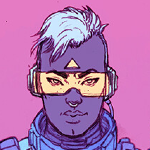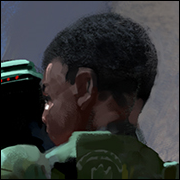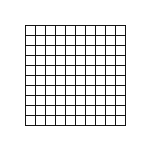|
BigFactory posted:Some people listen to audiobooks at 2x while working and say they read them. I had a review complaining that my book was set in the present day but people kept talking about Obama, on the literal first page of the book it says it's set in 2013. Readers are baffling
|
|
|
|

|
| # ? May 11, 2024 22:42 |
|
Assuming literacy in a readership is a classic mistake.
|
|
|
|
General Battuta posted:I had a review complaining that my book was set in the present day but people kept talking about Obama, on the literal first page of the book it says it's set in 2013. Readers are baffling Maybe they thought is was a prologue and skipped it.
|
|
|
|
it's a fairly obscure hint but that characters are referring to obama as the current president might work as a context clue for when the story is set
|
|
|
|
curlingiron posted:Maybe they thought is was a prologue and skipped it. 
|
|
|
|
Peel posted:it's a fairly obscure hint but that characters are referring to obama as the current president might work as a context clue for when the story is set Conversely I just finished a book that came out last year that was set in 2023 and 50% about Twitter and it was incredibly distracting change my name fucked around with this message at 15:37 on Feb 6, 2024 |
|
|
|
Remember how people thought that Rue from The Hunger Games was white? They read the sentence "She has dark brown skin and eyes, but other than that, she's very like Prim [Katniss' fair-skinned sister] in size and demeanor" and went "Ah, so Rue is also fair-skinned, yes yes, I am very good at reading comprehension"
|
|
|
|
I used to know someone that good at reading who works as a freelance editor. She once told me she was a really good speed reader
|
|
|
|
BigFactory posted:Some people listen to audiobooks at 2x while working and say they read them. Some people use Blinkist to get a 15 minute summary of an entire book and call it the hustle.
|
|
|
|
Nethilia posted:Some people use Blinkist to get a 15 minute summary of an entire book and call it the hustle. TBH, for a lot of books Blinkist covers a 15 minute summary is enough. A lot of them are an article's worth of insight stretched out into a book.
|
|
|
|
We had prologue discourse, so let's switch to epilogues. I'm editing a book that has a full character arc and while not all of the plotlines are wrapped up, could be considered a standalone. But only if it ends where the last chapter ends. Some beta readers have said they want an epilogue to see how things end up when the "hero returns." But the problem is that there really isn't going to be a second status quo before the next inciting incident that will start the next chain reaction of events. Anything I can think of writing opens up more questions than it answers. And mostly I think of epilogues for 95% tying up loose ends and maybe 5% hinting at stories that might come next. So I guess my questions are whether a book can feel satisfying without that establishing of the new status quo? When are epilogues necessary? What do you consider the purpose of epilogues? My novel is a fantasy if that makes a difference.
|
|
|
|
I'm writing a sci-fi serial/novel (posting chapters when they're ready but there's an "end.") I think some of the readers are being really put off because, to use the TVTropes term "Uncanny Valley," this is "Uncanny Society." It's very funny.
|
|
|
|
Poor Masahiro Mori...consumed by tv tropes
|
|
|
|
Really, the "valley" part is entirely unneccesary, as "uncanny" fulfills the entire logic on its own. But yeah, an "uncanny" society of humans... I started out trying to walk the line of "all dystopias are utupias"/"all utopias are dystopias" but as I've gone I've realised it's doing all the right things but it's just alien enough that you can't quite get a good read of the society. It's wrong enough and familiar enough, although I wasn't trying for this result, it might be leaning towards "disturbing" for some people. Now I have to decide how far I lean into it.
|
|
|
|
Mrenda posted:Really, the "valley" part is entirely unneccesary, as "uncanny" fulfills the entire logic on its own. I want to read this
|
|
|
|
Stuporstar posted:I want to read this When it's complete I might share the full thing. Earning money is a problem for me due to being on social welfare, and the system I'm in having no ability to manage earning, say, €150 one month and €90 the next. If I published it and got over the e-book creation system/covers I could put it on Amazon, but it'd have to be de-monetized, and I'm not sure I want to completely cut myself off from earning money in the future by committing to free. I've realised from my other work it's very difficult to get people to care about writing that comes through non-standard delivery methods, so self-hosted and the like really doesn't work.
|
|
|
|
a friendly penguin posted:We had prologue discourse, so let's switch to epilogues. I'm sorry to be vague but if it's necessary depends on the story. There are good times to wrap things up completely and there are good times to add an Animal Party-esque "where are they now." For instance, in a novel that I am writing currently, my plan is for the ending to have a specific resolution (some kind of crises averted or being let to happen) and the fallout will not be shown. The audience will have enough questions answered and unanswered about the overall problem that affects society that there is extra drama the audience can imagine and that imagination (in my case) is better than saying "this is exactly how it works out." edit: I think a good example is the film Fight Club. The ending wraps up the main plot. The last that we see is buildings crumbling and we as the audience can only imagine the impact that has on everyone else. I do wonder, yes, what happens next? But it's unimportant for me to be shown what happens next. It's cool to think about but it's not necessary for the story itself.
|
|
|
|
The Sean posted:I'm sorry to be vague but if it's necessary depends on the story. There are good times to wrap things up completely and there are good times to add an Animal Party-esque "where are they now." This. My WIP is also going to have an epilogue where it's revealed that the entire book has been the main character debriefing someone and explaining where everyone ended up, but sometimes it's just better to let the story end without a hard resolution and let the reader imagine the consequences
|
|
|
|
The Sean posted:I'm sorry to be vague but if it's necessary depends on the story. There are good times to wrap things up completely and there are good times to add an Animal Party-esque "where are they now." Don't be sorry! I wasn't really looking for specific answers about my book, which is why the questions are opened ended. And these are great answers and examples. Thanks.
|
|
|
|
Fight Club is an example of both a good epilogue in the book: Tyler being locked and dosed up in a psych ward being tended to by "angels" and implying that Project Mayhem is still active And a bad epilogue from the Chinese edit of the film: Tyler's clue to the police led to him being arrested before the bombs could go off
|
|
|
|
quote:"Tyler Durden died on the way back to his home planet" ahaha the comments.
|
|
|
|
a friendly penguin posted:We had prologue discourse, so let's switch to epilogues. I find myself having to write an epilogue in my latest finished novel to tie up enough loose ends to leave the reader satisfied cause my original ending is definitely not. All it really needs to show is life goes on after a terrible ordeal. The reason I do it in an epilogue is because it involves a bit of a time jump after the devastating last chapter. Now I am writing with a sequel in mind, but that involves another big time jump, so I want the first novel to feel resolved enough that it could stand on its own. So for me the epilogue is not there to hint at what’s coming, it’s a closing of that novel’s arc. Any forward momentum from there is just to make it feel like there is a future and the reader can fill in the blanks
|
|
|
|
Mrenda posted:When it's complete I might share the full thing. Earning money is a problem for me due to being on social welfare, and the system I'm in having no ability to manage earning, say, €150 one month and €90 the next. If I published it and got over the e-book creation system/covers I could put it on Amazon, but it'd have to be de-monetized, and I'm not sure I want to completely cut myself off from earning money in the future by committing to free. I made some emails about this. Theoretically it's possible I could keep my social welfare while earning some money from writing. The way it works is my income would be constantly monitored, with me reporting my earnings. For the first few months I report every week, then my social welfare is adjusted based on how much I've earned, with a certain amount being money that doesn't affect my social welfare. After my first year of earning my social welfare is adjusted based on a tax return/yearly report. That gets reviewed every year, and at any point they deem necessary. I don't know if I can request a review. It means a bit of "invasion" into my life and my finances, and I enter a strange situation where I'm both self-employed and on social welfare. And have two governmental bodies I'm answerable to and have to be fully open with. There's obviously problems with how meticulous I have to be with everything, far more than if I was just a regular writer relying on book sales. The other problem is how front loaded book sales are, and how much of a "tail" I have. A long term problem could be if I have a relatively big hit with one book, and my social welfare is drastically reduced the next year and I have no other big hit, with it being a once-off, luck thing. It is possible, though. And I have to have a serious think about it. The next step is to talk to some family members about this. Then maybe get onto some of the writers' bodies here and see if they have advice.
|
|
|
|
Mrenda posted:I made some emails about this. Theoretically it's possible I could keep my social welfare while earning some money from writing. The way it works is my income would be constantly monitored, with me reporting my earnings. For the first few months I report every week, then my social welfare is adjusted based on how much I've earned, with a certain amount being money that doesn't affect my social welfare. After my first year of earning my social welfare is adjusted based on a tax return/yearly report. That gets reviewed every year, and at any point they deem necessary. I don't know if I can request a review. I’m in exactly the same situation with disability benefits, so I have to make the same considerations in the future. The first thing I’m probably gonna do is publish my series as a web serial for no money, then maybe set up a patreon, and then later publish them as ebooks. I don’t expect to make any money on it for a while though. One thing I’m doing is putting some of my money in a high interest savings account every month (I’ve become a pro at budgeting on next to nothing), so I’ll always have something to fall back on. I know not everyone on benefits is allowed to do that though, and when you are allowed there’s a limit before they cut you off and tell you to live on that. At least they’ll always pay my healthcare expenses
|
|
|
|
my take on endings/epilogues is there generally needs to be momentum. the current thought needs to let the reader carry through the most important part of the story. if two characters fall in love, if you show them making the next move in their relationship right after presenting a "will they/wont they" situation, the reader can fill in the blanks. it feels like the story is a slice of a greater reality. a big reason the sopranos ending was a lot more controversial is because someone who is attentive to the work can piece together how a world without tony soprano works, but for anyone not thinking big picture there's no momentum from the final shot and you also need to be really attentive to the scene as well. even a new status quo needs to maintain momentum. this is [character]'s new life, but their new life presents xyz challenges but because you know the character, you know theyll either adapt to or overcome those challenges. the place the characters are in must also feel like a natural continuity of what you saw before. basically your story should feel like a road and your ending should not be a dead end, it should be a "Las Vegas, 27 miles" sign. how you do that isnt super important. im sure theres good endings where this doesnt happen, but im having trouble recalling any that dont follow this pattern to some degree. so an epilogue, imo, should not be mandatory to do this momentum work, but instead continue the momentum work that was already going or tidy up a lose end thematically but not from a plot perspective. anime was right fucked around with this message at 18:59 on Feb 17, 2024 |
|
|
|
Stuporstar posted:I’m in exactly the same situation with disability benefits, so I have to make the same considerations in the future. The first thing I’m probably gonna do is publish my series as a web serial for no money, then maybe set up a patreon, and then later publish them as ebooks. I don’t expect to make any money on it for a while though. Yeah, the healthcare thing is the next step. Medical care here is a hybrid systems with it free for some people, ranging all the way to full-ish (but not US level charges), and then onto private healthcare. I need to see at what point I stop being entitled to free healthcare. And if the ruling is once you're self-employed, even if it's with the support of the disability service, you're no longer entitled to free healthcare the thinking about it stops at that point. Maybe it'll involve a few emails to TDs (MPs) to see if things can be changed long term. I genuinely think I played a part in the current system getting official guidelines because when I last checked into this they weren't available. And I emailed TDs who put written questions to the relevant government Minister, so it's on an official record somewhere. And the state/civil service doesn't particularly like having flaws in their system highlighted on the record. It took years to change, and I'm sure I wasn't the only person questioning it, but it did change.
|
|
|
|
just imagine skipping the first ten minutes of the goddamn movie, arbitrarily. goddamn
|
|
|
|
I'm currently reading Book Craft by Derek Murphy, and it's helping me work out my plot points. My idea for one of my villains is an automaton I'm thinking I'll have the villain's henchmen be werewolves that murdered the support character's parents. Or from the same clan or something. Instead of having my burglar guy hating on all werewolves in general, it would be more specific to these motherfuckers. I have a reason for the badguy being a robot, and his fate at the end is kind of related to that too. One villain has a change of heart, and the other deals with the robot guy before being defeated, herself. I feel like I'm going to overwhelm myself trying to manage 3 characters (with 1 secret identity) and 3 villains all doing stuff with their own agendas. I think I can make it work, it's just tying everything all together that's tricky. Waffle! fucked around with this message at 23:58 on Feb 27, 2024 |
|
|
|
I posted these recent revisions to my writer’s group and got some interesting discussion so I wanna post em here cause they’re kinda a mini-lesson in voice. I’m working on chapter I didn’t get to do a voice edit on because I rewrote most of it before handing it off to betas and it ended up being the weakest chapter in the book when it’s supposed to be kinda a tent-pole. So… Here it is before this edit. My protagonist is being coerced by his own guardians into doing something stupid dangerous: quote:“There’s more at stake here than your drat DJ job.” Now this is fine—if I were writing in 3rd person. Pretty standard stuff. But something about it always feels off when my 1st person narrator is basically acting out other people’s dialogue in big chunks of exposition. Like, I have a problem believing he could remember that much information and how it’s delivered. Real people, when telling a story, tend to paraphrase. So I’ve been switching to that at times when I feel it’s more appropriate, only slipping in key phrases of direct dialogue to affect the right tone. quote:“poo poo.” Of course they woulda found that out. Fool to think I could hide anything from them. I swallowed the sickening lump in my throat trying not to throw up. If they’d overheard the convo with Cat-9 in my crypt, I couldn’t dig deep enough to root them out. So much for all my plans. “So the gig’s over?” Like… this has allowed me to add extra layers, like my older protagonist’s judgement of his asinine younger self. I don’t need to flood the page with the Sec man’s attitude to convey it, or show how he’s manipulating the kid—that’s still all there. Is it better? I dunno, it just feels more right to me E. I recently found a post that kinda hits what I’m getting at regarding straight exposition vs. doing it in dialogue, which I always used to assume was better, because it’s taught that way as part of the show vs. tell dichotomy that always privileges show: https://writerunboxed.com/2019/01/02/the-inner-outer-balance/. Basically, sometimes telling is better—it depends entirely on the voice you’re writing in. And how it’s received is gonna depend on reader preference, like it or not, so really you have to make a choice, that feels right to you, and just try to stay true to it Stuporstar fucked around with this message at 01:58 on Feb 28, 2024 |
|
|
|
Yeah sometimes you just want to be penn and teller because it fits what you want to do, as with all 'rules' if you break it do it because you choose to, do it hard, and dgaf
|
|
|
|
I think the second quoted excerpt reads much better, but I think with first person (in general, not about your work specifically) you really need to decide if you're doing it as the narrator recounting events that've already happened (in which case, lots of summary is great) or whether we're going with them as they experience it (which can, as you point out, just feel like third-person with I scattered through it.) I don't write in first person much, but I've always found that ability to summarise and reflect interior judgements to be much neater in that POV than I ever do summarising things in third.
|
|
|
|
|
I've never thought of interiority as exposition. If I write third person I think it's almost always been past tense, if I write first person I write in the present, as far as I can recall. It just feels correct, I haven't justified to myself why I feel this way. Third person is also, often, close third person, with interiority focused on one particular character. Although I have had fun with jumping around, even with a sub-chapter section, with where interiority is placed. This is ued sparingly. Writing is good. Have fun with it.
|
|
|
|
I like writing in first person present tense. It brings the events really close. You can also just write thoughts and judgements like: > He is blocking the door. He is such an rear end in a top hat. Instead of: > He blocked the door. "He's an rear end in a top hat", I thought. So it feels much more natural to put in a lot of character voice. In first person past tense you always have to juggle that double perspective of what the character thinks at the time that things are happening, and what xe thinks about it in retrospect. It can be really useful in some scenarios, but it does add a lot of cognitive load. I do also like writings where the frame story is an epistolary or some other scenario of a specific person narrating for a specific reason. But I've never really been able to make it work, myself.
|
|
|
|
pidan posted:I like writing in first person present tense. It brings the events really close. You can also just write thoughts and judgements like: You can absolutely do this in close third limited POV. There’s no rule that says you have to always use indirect thoughts in third person. Nor do you even have to format direct thoughts in italics if you don’t want to. Most of the time, I don’t. The only times I do tend to be times when the POV character is specifically conscious of having the thought.
|
|
|
|
pidan posted:I like writing in first person present tense. It brings the events really close. You can also just write thoughts and judgements like: He blocked the door. rear end in a top hat.
|
|
|
|
Hmm, it's like: First person present tense: > Ann puts her hand on my shoulder. She likes me. Pretty straightforward what is going on, POV witnesses something and then has a thought about it. First person past tense: > Ann put her hand on my shoulder. "She likes me," I thought. > Ann put her hand on my shoulder. She liked me. In the first case, it's implied that the narrator was wrong to think that, in the second case it's implied to be a fact and not a thought. That's not a bad thing! You might want that! But it removes immediacy. I think in third person tense matters less: Third person indirect: > Ann put her hand on Bea's shoulder. She liked her. Can work! But I'd argue we again have the problem that the narration implicitly agrees with the thought. It also might look like we're switching from Bea's POV to Ann's here. Third person direct: > Ann put her hand on Bea's shoulder. "She likes me", Bea thought. This is very clear, we know whose head we're in, and there's no pronoun confusion. But it's too complicated to inject it in the text everywhere all the time, so there will be less personal thoughts if you write like this. It's not an insurmountable problem or anything, and constantly injecting the POV's thoughts isn't for every story anyway. But I think it makes a difference.
|
|
|
|
Door blocked. Door blocked! Please! I beg you! We're dead! You're a g-g-genuine rear end in a top hat!
|
|
|
|
I’ve probably said this before, but the biggest difference between 1st person and 3rd person is that 1st is inherently subjective whereas 3rd pretends to be objective. Of course a 1st person narrator can also pretend to be objective, but there’s a reason “unreliable narrator” is a term that’s pretty exclusive to that pov, because the reader is more likely to suspect a 1st person narrator is biased or even lying about things. Whereas readers tend to naturally believe everything in a 3rd person story is “how it really happened.” Close 1st person is often taken that way as well, but this is only by forgetting how skewed people’s perspectives are, all the time. That’s just human nature, so I find that take really naive (and personally find 1st person fiction written that way really naive). 1st person present tense isn’t necessarily closer. Just look to Damon Runyon for how it can be used as just another way a character can tell a story as if telling it to another person. The stream of consciousness in The Handmaid’s Tale is actually Offred recording her story on a tape recorder. I use this particular narrative device myself in one of my novels, where a character is reliving their memories as they join a collective mind. Now I’m not saying treating close 1st person as a direct window into someone’s mind is wrong. I’m saying that’s not its sole purpose—it’s just another choice, something people forget. It’s also one that 3rd person limited does better, due to its natural claim to objectivity, if that’s what you’re going for. And if there aren’t a lot of layers to the protagonist’s thoughts, it comes off as a really shallow perspective. Like YA with its tendency to treat their protagonists as human skinsuits the reader can slip on and ride around in on autopilot because their pov is little more than “typical snarky teen.” (or aged up to 20+ so they can gently caress but still act like teens—ugh), because giving them a real personality won’t let the reader self-insert. When I’m writing 1st person even I default to what the character is thinking and feeling in the moment in my first drafts. The thing is, my first drafts are really weak because of that. They only truly shine after I’ve done the voice edit, considering more than the protagonist’s immediate actions and reactions. After I’ve added more layers of the past or future bleeding into the now (the past always bleeding into the now and the future only from a more distant perspective). I do this even if I’m writing in present tense. It is more “cognitive load,” but that load is gradually piled on over multiple drafts. The thing is the reader doesn’t feel that as load, they feel it as depth, so it’s worth the extra effort. Here’s another example of the difference. My first draft is immediate and a bit procedural in terms of “And then I did this, and then I did this, and then I…” Kinda weakass. Same chapter as the last one, after my protagonist chickens out and does a runner on everyone. quote:“Was crazy to come here. I can’t do this. I can’t.” Like, people have told me this is fine, but it’s first draft poo poo. It’s just plunking down “what happened” and the dialogue is just the most obvious poo poo that first comes to mind in a situation like this. I know drat well I can do better. I also extended the scene because it was kinda perfunctory for an action scene, so I’ll zoom in here… quote:So focused on the threats level with me, I never saw the drone come down, almost on my head. Its whine filled my ears just as I heard a gunshot crack across the rooftop. Drone swerved so fast its wake nearly knocked me down. So the perspective is a little more zoomed out, being looked back on by his older self. Would he actually remember more environmental details than in the moment? Probably not, but going over memories you fill in details. You rewrite them every time. Would he have the wherewithal to talk back to Momma T in that moment? Hell no, he’s lying is rear end off in the retelling to make it more entertaining. You can just… y’know… do that
|
|
|
|
The difference between 1st person and 3rd person is as simple as: In 1st, the narrator and the character are the same person and the story must be told from a logical vantage point (usually: during, after) In 3rd, the narrator and the character are different people and the story can be told from whatever the hell vantage they please (a thousand years in the past/future, why not) Meaning: In 1st, the narrator can only ever know what the character knows. In 3rd, the narrator can vary from only knowing what the character knows to knowing literally Everything. and In 1st, the narrator must be consistent with the character. An illiterate caveman can't use highly formal, pedantic language. In 3rd, the narrator need only be consistent with themself. An illiterate caveman can be described using formal, pedantic language . . .but it would be weird if it suddenly became casual without good reason. Usually 1st person is able to achieve greater reader/writer intimacy than even close 3rd. But, you can make a third person so drat close that it feels like first person, like you replaced "I" with a pronoun. The literary equivalent of "So this embarrassing thing happened to . . . my friend . . ." I think many of things people listed above, reliable vs not, interiority vs not, objective vs subjective are narrative attributes that could be applied to either POV. Though of course some are more common in one compared to the other. Also: Vantage is different from tense. Past tense can be just about as immediate as present. The text is just "being written" as it happens. It can also be any interval afterwards, from having a moment to think about it, to many years later. Good to know when your story is being told from, whether 1st or 3rd. Sometimes it's good for the narrator to contextualize, sometimes its good to leave that to the reader.
|
|
|
|

|
| # ? May 11, 2024 22:42 |
|
ultrachrist posted:The difference between 1st person and 3rd person is as simple as: Yeah, this we already all know. or I hope so, cause it’s the foundation we’re all discussing on top of. If you’re arguing against the idea that it’s more than that—nah. There are considerations and tradeoffs you make when choosing one or the other, other than the most basic ones you listed, and dismissing them is a disservice. quote:Usually 1st person is able to achieve greater reader/writer intimacy than even close 3rd. But, you can make a third person so drat close that it feels like first person, like you replaced "I" with a pronoun. The literary equivalent of "So this embarrassing thing happened to . . . my friend . . ." This is debatable. It’s basically one of those things a lot of people parrot when it doesn’t really bear out. For one, the 1st person narrator’s agenda or perception can create distance between themself and the reader. 1st person can be intimate in the way of someone leaning up close to you and telling you a secret, but it’s not a perfectly clear windowpane into the protagonist’s mind the same as close limited 3rd can be. I would argue that 3rd limited is more immersive than 1st in a lot of cases. When I see 1st person treated like a clear windowpane into the protagonist’s mind, so often these cases would be better served by switching to 3rd. Because then there’d be no need to call out such frequent slip ups like why their exposition is all telling the reader things they (the protagonist) already know and wouldn’t be actively thinking—y’know, if they’re not supposed to be “telling” the reader their story. And other clumsy poo poo like them describing how they’re positioning themselves in space like they’re unnaturally conscious of it all the time. And I’ve seen it so much. And these same people arguing that “1st is more intimate.” But instead it’s like they’re already writing like close limited 3rd person with the pronouns switched to “I”. You could argue that it can be done well if you fix those problems, but if you’re writing in 3rd, those problems simply go away—those weaknesses become strengths—so it’s another consideration when making that choice. There’s a reason why ton of editors tell novice writers to switch to 3rd, and it’s because naive 1st tends to make all these mistakes and more. While well-written 1st person is so much more. quote:I think many of things people listed above, reliable vs not, interiority vs not, objective vs subjective are narrative attributes that could be applied to either POV. Though of course some are more common in one compared to the other. The split between 3rd being more inherently objective than 1st is one based on convention and reader expectation, or even societal expectation. It’s not a limitation, but something you can work with or against to your own effect. In my case I revel in the subjectivity of 1st and push it to its maximum. You can do the same in 3rd, but you’re working against the reader expectation that you’re presenting “what really happened” (and doing so can be super cool and good). Maybe it’s more of a balance than a split, but it’s something I’ve noticed through a lot of reading. Yes you can have a subjective 3rd person narrator, particularly if that narrator has their own pov and voice, and they can be unreliable. The Island of the Day Before by Emberto Eco is a great example of this—it’s a story being told by a historian, whose own character and opinions are revealed through the telling moreso than the protagonist’s. Objective 1st person though… I don’t think that kind of objectivity really exists. It’s a delusion we all have I guess, but it’s one that easier to pretend to in 3rd. I guess if your 1st person narrator is a machine or self-insert automaton… Yeah I know, this is just like, my opinion, maaan I’m not arguing against mixing it up. I want people to mix it up, break “rules,” do cool poo poo. Awareness helps with that quote:Also: Vantage is different from tense. Past tense can be just about as immediate as present. The text is just "being written" as it happens. It can also be any interval afterwards, from having a moment to think about it, to many years later. Good to know when your story is being told from, whether 1st or 3rd. Sometimes it's good for the narrator to contextualize, sometimes its good to leave that to the reader. 100% agree on this. Stuporstar fucked around with this message at 22:08 on Feb 28, 2024 |
|
|




























